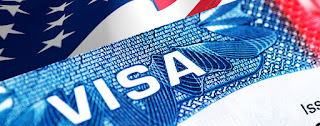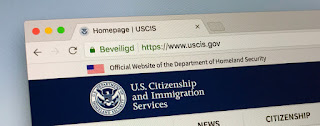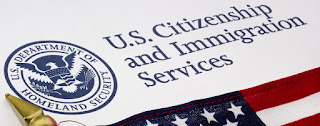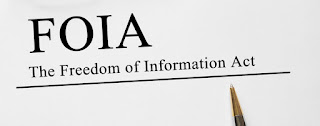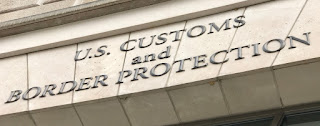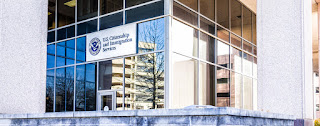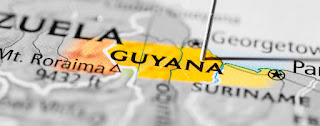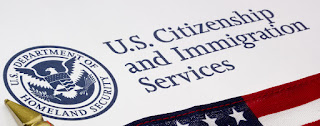Introduction
On May 10, 2019, the Executive Office of Immigration Review (EOIR) held an investiture ceremony to swear in 18 new immigration judges [
PDF version]. One of the 18 new immigration judges will serve as an assistant chief immigration judge with supervisory responsibilities. Each of the 18 new immigration judges was selected by Attorney General William Barr. The 18 new immigration judges will serve on 9 immigration courts across the country.
In this article, we will examine the biographies of the new immigration judges — sorted by immigration court — with reference to the EOIR news release. To read about previous immigration judge investiture ceremonies, please see our article index [
see article].
Abbreviations:
- Department of Justice (DOJ)
- Department of Homeland Security (DHS)
- U.S. Immigration and Customs Enforcement (ICE)
- U.S. Citizenship and Immigration Services (USCIS)
Immigration Courts With New Immigration Judges From May 2019 Investiture
- Cleveland Immigration Court (Ohio) [1 new ACIJ and 1 new IJ]
- Boston Immigration Court (Massachusetts) [3 new IJs]
- Conroe Immigration Court (Texas)
- Elizabeth Immigration Court (New Jersey)
- Fort Worth Immigration Adjudication Center (Texas) [2 new IJs]
- Miami Immigration Court (Florida) [3 new IJs]
- Philadelphia Immigration Court (Pennsylvania)
- San Antonio Immigration Court (Texas)
- San Francisco Immigration Court (California) [4 new IJs]
James. F. McCarthy III, Assistant Chief Immigration Judge, Cleveland Immigration Court
- 1995-2019: Private practice.
- 1983-1995: Assistant city solicitor and chief trial counsel for the city of Cincinnati, Ohio.
- 1983-1995: Judge advocate for the U.S. Navy.
- 1981-1983: Private practice.
- 1977-1981: Active duty judge advocate for the U.S. Navy.
- Law degree from the Ohio State University College of Law in 1977.
ACIJ McCarthy immediately assumed supervisory duties at the Cleveland Immigration Court upon being sworn in. His legal experience comes exclusively from private practice, the U.S. Navy, and from working for the city of Cincinnati, Ohio.
John M. Furlong Jr., Immigration Judge, Boston Immigration Court
- 2013-2019: Deputy district director for USCIS, DHS, in Boston, Massachusetts.
- 2006-2013: Deputy chief counsel for ICE, DHS, in Boston, Massachusetts.
- 1996-2006: Assistant chief counsel for ICE, DHS, in Boston, Massachusetts.
- Law degree from Suffolk University in 1994.
IJ Furlong has over two decades of experience as a lawyer for ICE and USCIS.
Lincoln S. Jalelian, Immigration Judge, Boston Immigration Court
- 2009-2019: Assistant chief counsel, Office of the Chief Counsel, ICE, DHS, in Boston, Massachusetts.
- 2008-2009: Assistant attorney general in the Office of the Attorney General of Massachusetts.
- 2004-2008: Trial attorney in the Organized Crime and Racketeering Section, Criminal Division, DOJ.
- 2002-2003: Resident legal advisor at the U.S. Office in Pristina, Kosovo.
- 1992-2004: Assistant district attorney in the Middlesex County District Attorney's Office in Cambridge, Massachusetts.
- Law degree from Boston University School of Law in 1992.
IJ Jalelian has worked as both a state and federal prosecutor prior to his decade-long stint as an attorney for ICE.
Jennifer A. Mulcahy, Immigration Judge, Boston Immigration Court
- 2002-2019: Assistant chief counsel for the Office of Chief Counsel, ICE, DHS, in Boston, Massachusetts.
- Law degree from Suffolk University School of Law in 2001.
IJ Mulcahy worked for seventeen years as an ICE attorney prior to becoming an immigration judge.
Taresa L. Riley, Immigration Judge, Cleveland Immigration Court
- 2009-2019: Assistant U.S. attorney, Northern District of Ohio, DOJ, in both the Cleveland and Akron offices, finishing her service as the Attorney-in-Charge, Criminal Division, of the Akron Branch Office.
- 2008-2009: Assistant prosecuting attorney for the Cuyahoga County Prosecutor's Office in Cleveland, Ohio.
- 2003-2008: Senior law clerk for the U.S. District Court, Northern District of Ohio.
- 1999-2003: Law clerk and judicial attorney for Judge John R. Adams in the Court of Common Pleas in Summit County, Ohio.
- Law degree from the University of Akron School of Law.
IJ Riley has extensive experience as a federal prosecutor and law clerk prior to taking the immigration bench.
Holly A. D'Andrea, Immigration Judge, Conroe Immigration Court
- 2011-2019: Assistant U.S. attorney with the U.S. Attorney's Office for the Southern District of Texas, DOJ, in Brownsville, Texas.
- 2016-2017: National border and immigration legal issues coordinator with the Executive Office for U.S. Attorneys, DOJ, in Washington D.C.
- 2008-2010: Assistant prosecuting attorney, assistant county counselor, and city attorney in Washington County, Missouri.
- 2007-2008: Private practice.
- Law degree from Saint Louis University School of Law in 2006.
IJ D'Andrea was a federal and former local prosecutor with a one year stint as a DOJ lawyer dealing with border and immigration issues.
Jason L. Pope, Immigration Judge, Elizabeth Immigration Court
- 2014-2019: Assistant chief counsel, Office of the Chief Counsel, ICE, DHS, in Baltimore, Maryland.
- 2007-2012: Private practice specializing in immigration law.
- Law degree from Syracuse University College of Law in 2006.
IJ Pope has experience as an ICE attorney and as an immigration lawyer in private practice.
Jacob D. Bashore, Immigration Judge, Fort Worth Immigration and Adjudication Center
- 2006-2019: Attorney and circuit judge with the U.S. Army.
- Law degree from the University of Tennessee College of Law in 2006; Master of Laws degree from The Judge Advocate General's Legal Center and School in 2011.
IJ Bashore's experience comes exclusively as an attorney and judge for the U.S. Army.
Marium S. Uddin, Immigration Judge, Fort Worth Immigration Adjudication Center
- 2016-2018: Assistant chief counsel with the Office of the Chief Counsel, ICE, DHS, in Dallas, Texas.
- 2015-2016: Assistant district attorney with the Dallas County District Attorney's Office in Dallas, Texas.
- 2011-2015: Assistant public defender with the Dallas County Public Defender's Office in Dallas, Texas.
- 2010-2011: Criminal defense and immigration attorney in private practice.
- 2005-2010: Assistant district attorney with the El Paso District Attorney's Office in El Paso, Texas (also from 2001-2002).
- Law degree from The University of Texas School of Law in 2000.
IJ Uddin brings a variety of experience to the immigration bench from her stints as an ICE attorney, prosecutor, public defender, and immigration attorney in private practice.
Michelle C. Araneta, Immigration Judge, Miami Immigration Court
- 2000-2019: Prosecutor with the Pima County Attorney's Office in Tucson, Arizona.
- 1995-1999: Prosecutor with the District Attorney's Office in Riverdale, California.
- 1991-1995: Associate attorney practicing tax and bankruptcy in Orange County, California.
- 1989-1991: Law clerk for Judge David N. Naugle of the U.S. Bankruptcy Court for the Central District of California [PDF version].
- Law degree from California Western School of Law in San Diego in 1989.
IJ Araneta brings over two decades of experience as a local prosecutor and additional experience in the area of bankruptcy law to the immigration bench.
Thomas M. Ayze, Immigration Judge, Miami Immigration Court
- 2008-2019: Assistant chief counsel, Office of Chief Counsel, Office of Chief Counsel, ICE, DHS, in Miami, Florida.
- 2007-2008: Fraud, detection and national security immigration officer with USCIS, DHS, in Miami, Florida.
- 2003-2007: Asylum officer with USCIS, DHS, in Miami, Florida.
- 1988-2010: Judge advocate in the U.S. Air Force (active duty 1988-2002; reservist 2003-2010)
- Law degree from the University of Florida Levin College of Law in 1988.
IJ Ayze has a wealth of experience with ICE and USCIS, including a four-year stint as an asylum officer. IJ Ayze also served for over two decades as a judge advocate for the U.S. Air Force.
Abraham L. Burgess, Immigration Judge, Miami Immigration Court
- 2012-2019: Assistant chief counsel, Office of Chief Counsel, ICE, DHS, in Texas and California.
- 2003-2011: Judge advocate for the U.S. Army.
- Law degree from Boston University School of Law in 2002.
IJ Burgess' experience is split between a seven-year stint as an ICE lawyer and an eight-year stint as a judge advocate for the U.S. Army.
Mary C. Lee, Immigration Judge, Philadelphia Immigration Court
- 2015-2019: Assistant chief counsel for Office of the Principal Legal Advisor, ICE, DHS, in Philadelphia, Pennsylvania.
- 2003-2015: Assistant chief counsel for Office of the Principal Legal Advisor, ICE, DHS, in Baltimore, Maryland.
- 2010-2013: Assistant chief counsel for Office of the Principal Legal Advisor, ICE, DHS, in Atlanta, Georgia.
- 2009-2010: Judicial law clerk in the Superior Court of New Jersey.
- 2000-2006: Served in the U.S. Air Force.
- Law degree from Rutgers University in 2009.
IJ Lee served for nearly a decade as an ICE attorney in three different locations prior to being sworn in.
Rifian S. Newaz, Immigration Judge, San Antonio Immigration Court
- 2018-2019: Private practice.
- 2011-2018: Assistant U.S. Attorney for the Western District of Texas, DOJ, in El Paso, Texas.
- 2004-2010: Assistant district attorney for the Harris County District Attorney's Office in Houston, Texas.
- Law degree from the University of Texas School of Law in 2004.
IJ Newaz's experience comes primarily as a prosecutor at both the federal and state levels.
Nicholas R. Ford, Immigration Judge, San Francisco Immigration Court
- 2003-2019: State of Illinois circuit court judge assigned to the criminal division of the Circuit Court of Cook County, Chicago, Illinois.
- 1997-2003: Judge assigned to the central bond court division of the Circuit Court of Cook County, Chicago, Illinois.
- 1991-1997: Assistant state's attorney assigned to the federal trial division of the Cook County State's Attorney's Office, Chicago.
- 1988-1991: Assistant state's attorney assigned to the major narcotics task force in the Cook County State's Attorney's Office.
- Law degree from the University of Iowa College of Law in 1988.
IJ Ford has extensive experience as a state judge in Chicago from 1997-2019. Prior to serving as a judge, he was a prosecutor for nearly a decade.
Susan Phan, Immigration Judge, San Francisco Immigration Court
- 2015-2019: Assistant chief counsel for the Office of the Chief Counsel, ICE, DHS, in San Francisco, California.
- 2012-2015: Assistant general counsel for the State Bar of California, in San Francisco.
- 2009-2014: Special assistant U.S. attorney and assistant U.S. attorney for the Northern District of California in San Francisco, and for the Eastern District of California in Fresno.
- 2005-2019: Assistant attorney general with the District of Columbia Attorney General's Office in Washington, D.C.
- Law degree from the University of California, Los Angelis in 2004.
IJ Phan brings experience as an ICE attorney and as a federal and local prosecutor to the immigration bench.
Jason M. Price, Immigration Judge, San Francisco Immigration Court
- 2007-2019: Assistant chief counsel for the Office of Chief Counsel, ICE, DHS, in San Francisco, California.
- 2006-2007: Assistant public defender for the Maryland Office of the Public Defender in Hagerstown, Maryland.
- 2000-2005: Active duty judge advocate for the U.S. Air Force.
- Law degree from the West Virginia College of Law in 2000.
IJ Price has extensive experience as an ICE lawyer, public defender, and judge advocate.
Jennifer M. Riedthaler Williams, Immigration Judge, San Francisco Immigration Court
- 2017-2019: Judicial magistrate with the Lorain County Domestic Relations Court in Elyria, Ohio.
- 2001-2017: Assistant prosecuting attorney with the Lorain County Prosecutor's Office in Elyria, Ohio, in the felony criminal division and the juvenile and felony non-support division.
- Law degree from Case Western Reserve University School of Law in 2001.
IJ Williams worked as a magistrate judge and local prosecutor prior to taking the immigration bench.
Please visit the
nyc immigration lawyers website for further information. The Law Offices of Grinberg & Segal, PLLC focuses vast segment of its practice on immigration law. This steadfast dedication has resulted in thousands of immigrants throughout the United States.

